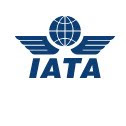Regulation 300/2008 on aviation security applicable as of 29 April 2010 puts in place new rules to improve, streamline and simplify existing procedures. For example by:
- Eliminating duplication of security controls. For example, reducing costly duplication of checks in strictly controlled areas of EU airports, where there has already been strict screening for access. This is of significant operational benefit for airlines and airports.
- Simplifying procedures. For example, by establishing a single set of standards for the documents you need to get access at airports. The new rules clarify which kinds of identification and authorisations are necessary for access to different restricted areas. This clarifies the situation for authorities making it easier for them to operate the system.
- Harmonising procedures. For example, introducing EU-wide procedures for the recognition of hauliers transporting air cargo consignments. These can be recognised and used by hauliers in all Member States – this reduces restrictions for hauliers and the need for costly re-screening of cargo.
- Introducing common minimum standards as regards security training for all staff that implement security controls.
By 29 April 2013 at the latest, all liquids will be allowed in cabin baggage and will be screened. By that date, the current restrictions on the carriage of liquids in cabin baggage will end. The transition period until 2013 is necessary to allow for a roll-out of liquids screening equipment at all EU airports.
Source: Europa Press relase RAPID IP/10/479 of 29/04/2010
Source: Europa Press relase RAPID IP/10/479 of 29/04/2010

